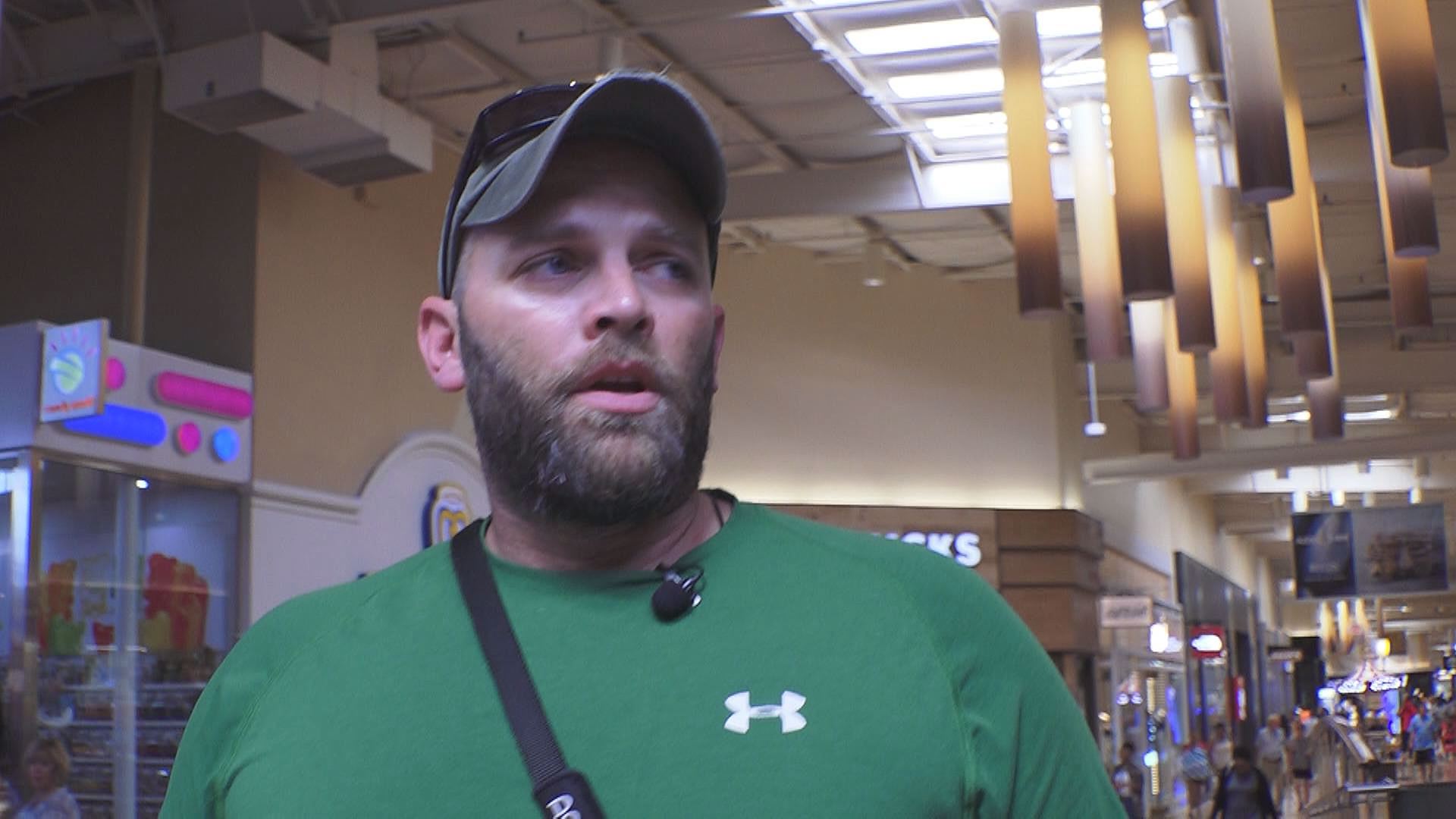Simply telling you how veterans live with post traumatic stress wasn’t enough. We needed to show you what Army veteran Chris Chavez and so many others endure in their daily lives.
Chavez is among the hundreds of thousands of combat veterans living with the invisible wounds of war.
For one extraordinary day, Chavez was willing to wear a heart monitor strapped to his chest. He even allowed WUSA9 to take him to places, where he has the most anxiety. His "triggers" included a crowded shopping mall, a busy grocery store and the roads during rush hour traffic. The WUSA9 Special Assignment Unit was able to witness firsthand the physical and emotional impact of these environments on Chavez.
Chavez said support from family and his service dog, Avery, has made all the difference. But right now, the Department of Veterans Affairs doesn’t cover the costs of service dogs for veterans with post-traumatic stress—only those with mobility impairments. So Chavez had to buy Avery himself and pay for training the dog with a professional instructor.
SUPPORTING THE PAWS ACT
Special Assignment Unit Reporter Andrea McCarren and Photojournalist John Mogor has uncovered Chavez's painful experience as an ongoing effort to educate the public about the PAWS Act (H.R.2327 and S.1014). It stands for Puppies Assisting Wounded Servicemembers.
If PAWS Act becomes law, the government would immediately launch a five year pilot program, so veterans with post traumatic stress could be placed with service dogs trained to help them.
If you believe in the PAWS Act and want to support veterans like Chavez, we encourage you to contact your members of Congress. You can ask them to endorse H.R.2327 and S.1014. The search above and the link here shows you the contact information for every member of Congress.


